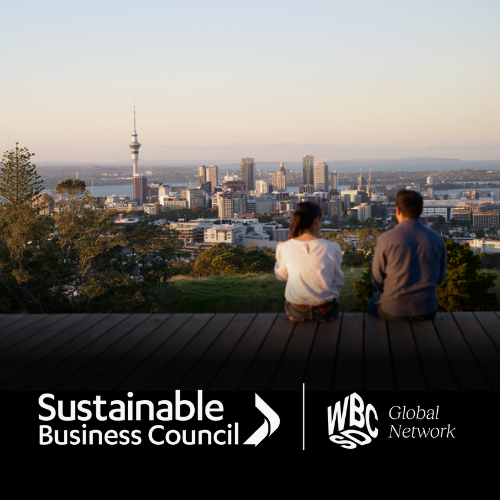Putting a Value on Natural Resources
New Zealand businesses are required to understand how they impact
the environment, but are not as good at understanding how much they depend on
natural resources and services. Abbie Reynolds provides her insights on the Natural Capital Protocol for NZ Business.
New Zealand businesses are required to understand how they impact
the environment, but are not as good at understanding how much they depend on
natural resources and services.
The reality is that there are huge risks associated with this
gap in our knowledge given that our economy is largely dependent on the state
of our environment – 13 of our top 20 export commodities depend on natural
resources; more than 70% of our export earnings.
The services nature provides – such as water purification,
carbon sequestration, flood minimisation, pollination and so on – are
unarguably highly valuable to business. But, businesses’ dependence on these
services and thus their value is not accounted for on any balance sheet.
New Zealand’s natural resources are the foundation of our
nation’s clean, green, safe, healthy brand – credentials that have never been
more important. China is now our largest export market for agricultural
products and there is significant potential in India and Indonesia. A recent survey
of consumer preferences in Asian markets found that Asian consumers place much
greater value on the environmental quality of their food products than
consumers from, say, the United Kingdom.
Other sectors of the economy also depend on natural resources
and services. New Zealand’s attraction as a tourist destination depends
strongly on healthy land, freshwater, and marine ecosystems.
The challenge for businesses is finding ways to usefully account
for these important non-financial values.
To date, there has been no generally accepted, structured way to include
this information in board papers or to use it to inform management decisions.
Decisions about environmental and social issues may appear
as moral arguments that rarely deliver consistent outcomes. What businesses
need are tools to understand, measure and value their dependencies and impacts
on natural resources – allowing them to improve their performance, increase resilience
by managing the associated risks, find opportunity and gain competitive edge.
Globally there’s a strong move toward valuing natural
resources and services as a form of capital alongside financial and human
capital. Natural capital can be measured and integrated into financial
modelling, which requires a structured approach to understanding dependencies
and impacts, and to mitigating effects and managing risk.
This ‘natural capital approach’ is being led by the World
Business Council for Sustainable Development (WBCSD) this month (July) launching
the Natural Capital Protocol, which has been piloted by over 50 companies worldwide.
In New Zealand, the Sustainable Business Council (SBC), a
regional partner of the WBCSD is working with businesses to adapt and use this Protocol
here. It builds on the Ecosystems Services Review method (ESR) which a number
of New Zealand businesses have already used with SBC’s guidance and assistance.
The findings from using the ESR tool have highlighted how
critical it is to understand dependence and impacts on natural capital and
ecosystem services.
A good example is Aotearoa Fisheries Limited which was
concerned about mass die-off of kelp in the Marlborough Sounds. Up to 70% of
kelp has gone, seriously threatening local pāua and other marine life which
rely on the seaweed for food and habitat.
Aotearoa Fisheries completed an ESR of its local pāua
fishery which revealed, among other threats to pāua, that sedimentation from
land-based run-off in deforested hills around Marlborough Sounds was a severe
impact affecting the kelp habitat. Whilst in other locations where coastal
native forest remained intact, there were more productive pāua fisheries.
As a result, the company is now working with the Department
of Conservation, Crown Research Institutes and other primary industry
businesses to inform decisions around how land use activities can address the
issue of sedimentation.
SBC is proposing to work with at least 40 New Zealand companies
over the next four years as exemplars for other businesses on how to improve
business decision-making by taking a structured natural capital approach to scoping,
measuring and valuing their dependencies and impacts on natural resources.
A natural capital approach is applicable to all
organisations and at all levels. It can help business connect different
non-financial work streams in business – such as work on energy, water, and
waste – providing a coherent way to compare results, identify interactions, and
support more integrated thinking, while also linking everyday project
management decisions to long-term strategy.
There are also other benefits, particularly with reporting
as investors become increasingly hungry for information about liabilities. The
Natural Capital Protocol is a practical way to do this and is likely to become
a recognised method for businesses to use and to report against.
Businesses that demonstrate their understanding and
sustainable management of natural resources gain competitive advantage locally
and internationally, as regulators and markets increase their expectations in
response to resources limitations and climate change.
Ultimately, the opportunity to embrace more sustainable
natural capital management far outweighs the risks of not taking action.
By Abbie Reynolds – Executive Director, Sustainable Business Council
Also published as an OpEd in the National Business Review on 15 July 2016
Contact:
Phone:
Email:

